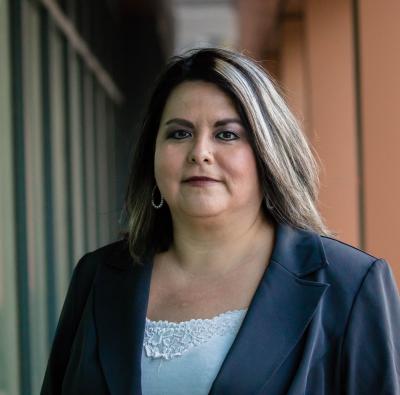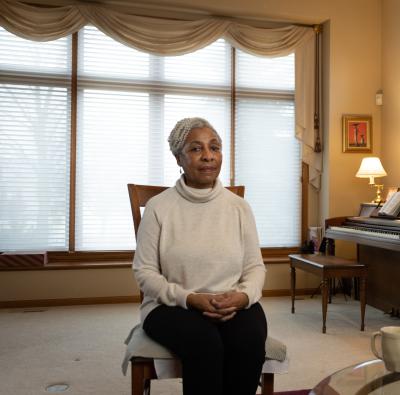This article was originally published as an edition in CLC President and Founder Trevor Potter’s must-read newsletter, “From the Desk of Trevor Potter.” For more in-depth insights and expert analysis like this delivered right to your inbox, sign up for the newsletter here or on LinkedIn.
The Trump administration’s effort to carry out its vision of...
Politicians must answer to their constituents, not wealthy special interests. When outside groups can spend unlimited amounts of money on elections, this opens the door to corruption and gives undue power to deep-pocketed interests looking to sway votes.
Thanks to the U.S. Supreme Court’s disastrous decision in Citizens United v. FEC, super PACs a...
President Donald Trump signed an executive order on March 25, 2025, about voting that threatens millions of Americans’ freedom to vote.
The order severely limits access to voting by requiring voters to jump through unnecessary hoops when registering to vote; requiring election officials to use unreliable data sources to remove eligible voters from...
The Voting Rights Act (VRA) prevents racial discrimination in voting, ensuring that all voters can live under fair maps and make their voices heard.
Despite the Supreme Court’s recent reaffirming of the VRA’s role in preventing discrimination in redistricting, anti-voting groups are once again trying to weaken this important law in Louisiana v...
Transparency is at the heart of a healthy democracy: Americans have a right to know who is spending money to influence their vote, and that their government is working for them, not to help special interests.
Without strong, well-enforced transparency laws, the people are left wondering if elected officials’ actions are for the public good or just...
Americans have a right to know that their government is working in their best interest. Freedom of Information Act (FOIA) requests are one of the most important tools the public has to learn about the government’s actions.
Enacted in 1966 and strengthened through post-Watergate scandal reforms, FOIA makes all federal agency records — with limited...
Elon Musk spent roughly $300 million to elect President Donald Trump and has the opportunity to profit from taxpayer dollars at the expense of the American people.
As part of his work with the so-called U.S. DOGE Service, it appears that Musk corrupted decision-making at the Federal Aviation Administration (FAA) and unfairly influenced government...
Ethics experts have been sounding the alarm since before Election Day that wealthy special interests were poised to have an excessive amount of influence on the federal government under a second Donald Trump administration.
After President Trump used an official appearance on the White House lawn to promote Tesla, the car company owned by...
In the United States, the government is designed to ensure that no single branch oversteps its authority or unilaterally undermines the rights of the American people. This system is called "checks and balances."
The three co-equal branches of government — legislative, executive and judicial — have distinct roles to play in ensuring each branch does...
On March 7, 1965, in Selma, Alabama, approximately 600 civil rights advocates set out to march to Alabama’s capital, Montgomery, to demand voting rights for Black Americans in the face of discriminatory laws and practices.
At the time, Black voters faced numerous obstacles when trying to register to vote, including literacy tests, poll taxes...
The well-being of everyday Americans is under threat. Unelected megadonor Elon Musk and his so-called U.S. DOGE Service (DOGE) threaten to dismantle America’s system of government.
Musk and DOGE have absolutely no legal right to make decisions as to how our government spends money — that is up to Congress — or to take control of the federal...
March 7 marks the anniversary of "Bloody Sunday," when Black civil rights champions including John Lewis, who later served in Congress for 33 years, were violently assaulted by law enforcement while marching for voting rights across the Edmund Pettus Bridge in Selma, Alabama.
The brutal footage from that day 60 years ago shocked and galvanized the...
In a big win for Arizona voters, two anti-voter laws that unfairly targeted Latino, Native and student voters were shot down by the 9th U.S. Circuit Court of Appeals.
In 2022, Arizona passed two restrictive laws that required voters to provide extra documents proving their citizenship and provide their birthplace in order to vote in state and local...
It’s apparent that there’s a real crisis of faith in our democracy.
Our elected officials are not as responsive to the will of the people as they should be, largely due to wealthy special interests spending big money to influence our vote and our government to rig the system in their favor.
This crisis grows worse when the Federal Election Commission...
In America, every voice should be heard, and every vote should count equally. The Voting Rights Act (VRA) of 1965 is an important federal law which protects that important ideal by banning racial discrimination in voting.
The VRA was passed to keep the promise of the 15th Amendment, which states that the right to vote cannot be denied based on...
Voters have a right to know who is spending to influence their vote and their government. Federal campaign finance laws protect this right by requiring federal candidates and committees to disclose their contributors.
But these laws haven’t stopped some wealthy individuals and special interests from trying to conceal their political contributions...
When only a small group of people with extraordinary wealth have power over the government, our system is not responsive to the will of the people, but rather to the will of a handful of wealthy donors whose biggest concerns are lining their own pockets.
Yet, President Trump is rewarding his biggest donors with political favors and countless...
Our democracy works best when everybody can participate. But a bill in Congress, the Safeguard American Voter Eligibility (SAVE) Act, could silence millions of voters by creating new barriers to voter registration that make it harder for Americans to make their voices heard.
Below are some of the many ways the SAVE Act could prevent Americans from...
Although executive orders have been used by presidents as far back as George Washington, they have become the subject of much discussion since the start of the second Trump administration.
Immediately upon reassuming office, Trump issued a flurry of executive orders that could be consequential for millions of Americans.
But the president is not a...
Our democracy works best when every voter can participate in it, but eligible voters can be removed from the voter rolls due to an unfair practice called voter purging.
Voter purges, or efforts to remove a significant number of voters from the registration rolls all at once, ultimately threaten Americans’ freedom to vote and tend to...
Voters have a right to know which wealthy special interests are spending big money to influence our vote and our government to rig the political system in their favor.
But years of living under the U.S. Supreme Court’s ruling in Citizens United v. Federal Election Commission (FEC), commonly known as Citizens United, has made it easier than ever for...

